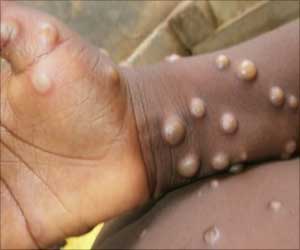Pet hamsters, gerbils, and guinea pigs of monkeypox patients should be isolated or killed, said European health authorities.

‘Rodent pets should ideally be isolated in monitored facilities, complying with respiratory isolation (for example, a laboratory) and animal welfare conditions (for example, government facilities, kennels or animal welfare organizations), and tested (by PCR) for exposure before quarantine ends.’





Globally, about 200 confirmed cases and more than 100 suspected cases have been detected in over 20 countries. Although the natural reservoir of monkeypox is unknown, experts believe it comes from rodents in the west and central Africa, where the disease is endemic.
Pet rodents -- including hamsters, gerbils, guinea pigs and mice -- are considered most at risk, as they are known to be susceptible to the disease. Other animals, including dogs and cats, should also be kept indoors -- but can isolate at home as the risks of contracting the virus are lower, The Telegraph reported.
Monkeypox Outbreak: ’Isolate Or Kill Pets’
According to Prof David Robertson, from the Glasgow Centre for Virus Research, although the threat of monkeypox jumping from humans to pets to wildlife is low, it is a "valid concern", the report said.If this happens, it would be incredibly difficult to trace the spread of the virus - which could jump back into humans from wildlife, triggering recurrent outbreaks.
Advertisement
Some experts, however, have downplayed the risks. Professor Ian H Brown, head of the virology department at the Animal and Plant Health Agency (APHA), said the threat remained "theoretical", with diseases "more readily" jumping the other way, from humans to animals.
Advertisement
"To date few animal species have known susceptibility to the virus. No companion dog cases have been reported during this event to date or in previous events."
Source-IANS








